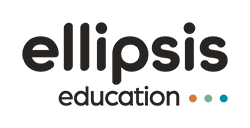High School Computer Science Game Development Pilot
Educators excite student interest in computer science by leading discussions and projects based on real-world applications, ethical behavior, and careers within the gaming industry. Students use Godot to order and code interactions between provided assets to create playable video games.
Read MoreHigh School Computer Science Python Pilot
In this project-based course, educators introduce students to coding with Python. Students develop computational thinking skills through basic computer science principles like loops, functions, and conditional statements. Students participate in group discussions to learn about the components of computer hardware and their functions in a larger system. Students manipulate data to understand user input, strings, and functions. After this course, students will have a basic understanding of hardware and software interactions in computer science.
Read MoreHigh School Computer Science JavaScript Pilot
Educators introduce high school students to computational thinking and computer science principles with a focus on web development, data usage, analysis of technological trends, and ethical internet behavior for young adults. This course places a strong emphasis on the local and global impacts of technology through discussions and project-based lessons. Students develop a research website about a STEM career of interest using JavaScript, HTML, and CSS. Students will learn foundational computer science skills that will prepare them for advanced coding courses and a technology-enabled workplace.
Read MoreComputer Science Applications Java Pilot
This project-based course is designed for students who have previous exposure to or clearly expressed interest in computer science. Students use Java, a line-coding language, to understand fundamental computer science principles like loops, functions, and conditional statements. Educators guide students through projects, including a computer science research presentation, that contribute to computational thinking and analytical skills.
Read MoreIntroduction to Computer Science Applications Pilot
Students use Javascript, HTML, and CSS to gain familiarity with web-page structure and front-end web design best practices. Educators lead discussions that explore various STEM careers and project-based activities that encourage students’ interests in web development.
Read MoreComputer Science Fundamentals Pilot
Students understand foundational computer science principles such as loops, debugging, and conditional statements in this 10-module course. Using Scratch, an open source block-coding language, students build games and solve puzzles to develop computational thinking and analytical skills. Educators introduce students to safe Internet behaviors, a variety of STEM careers, and real-world computer science vocabulary through participation in group discussion activities. After completion of this course, students will gain some basic skills needed to take higher level coding classes.
Read MoreComputer Science Foundations Pilot
Students use ScratchJr to understand foundational computer science skills. Along the way, they’ll understand the basics of computer interactions with unplugged and digital citizenship focused activities.
Read MoreLearn more about our curriculum!
Schedule a 30-minute call to explore our courses with one of our curriculum experts. You will preview curriculum features such as syllabi, lesson plans, and standards mapping.
